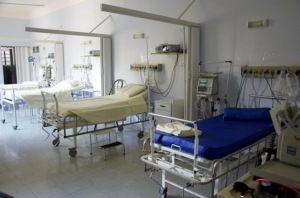News
Denmark has enough hospital beds to handle COVID-19
This article is more than 5 years old.
Sundhedsstyrelsen teaming up with regional authorities in a bid to be able to tackle a potential spike in hospitalisations

There is ample bed space in the hospitals (photo: Pixabay)
According to the health authority, Sundhedsstyrelsen, Denmark has enough capacity in its hospitals to handle the rising number of hospitalised COVID-19 patients.
Sundhedsstyrelsen confirmed that it was also collaborating with regional authorities to ensure that there will also be beds available in case of an increase in patients.
The plan is for over 800 beds to be available in hospitals nationwide – 300 of which will be in intensive care wards.
READ ALSO: Copenhagen tops COVID-19 infection rate list as death toll nears 1,000
Fewer serious cases
State Serum Institute figures from yesterday revealed that 429 people were hospitalised with COVID-19. 61 of those were patients receiving intensive care treatment.
When the epidemic was at its peak during last spring, there were around 400 patients hospitalised as well – but far more (around 140) were in intensive care.
“The COVID-19 epidemic is constantly developing. We can see that there are fewer people admitted to intensive wards now that was the case in the spring. All indicators suggest that fewer hospitalised patients are seriously ill than back then,” said Sundhedsstyrelsen spokesperson, Agnethe Vale Nielsen.
READ ALSO: Copenhagen reintroduces one-direction restriction around City Lakes
Plans afoot in all regions
Currently, COVID-19 patients take up 41 percent of medical bed space and 20 percent of intensive bed space reserved for COVID-19 patients.
And all five regions in Denmark are planning how to further increase their capacities.
More specifically, that includes ensuring that there is enough staff, equipment and space to handle a patient influx.
“We are in close co-operation with the regions regarding their plans, so we are sure that the capacity is there – however the epidemic might develop,” said Nielsen.










































